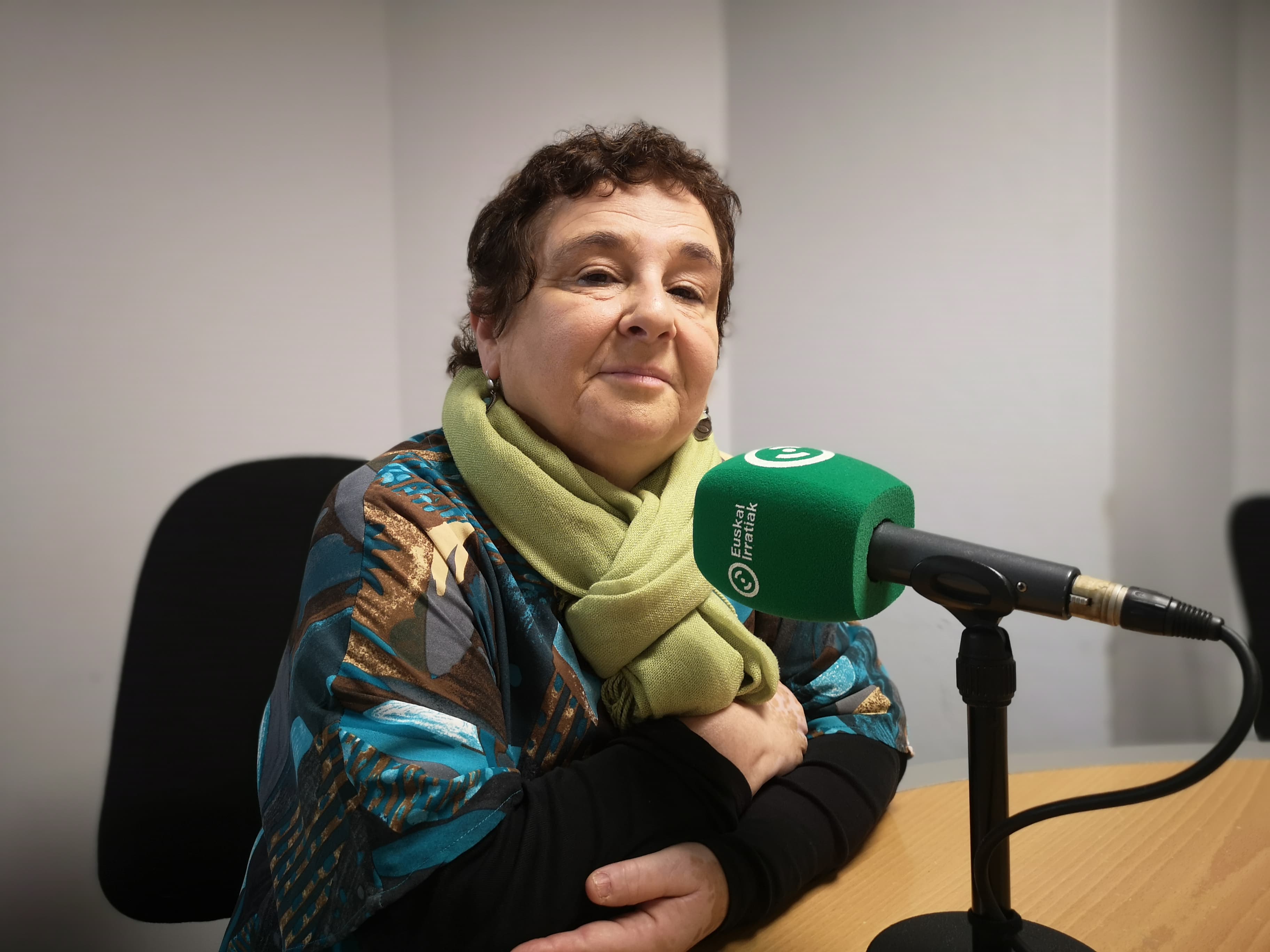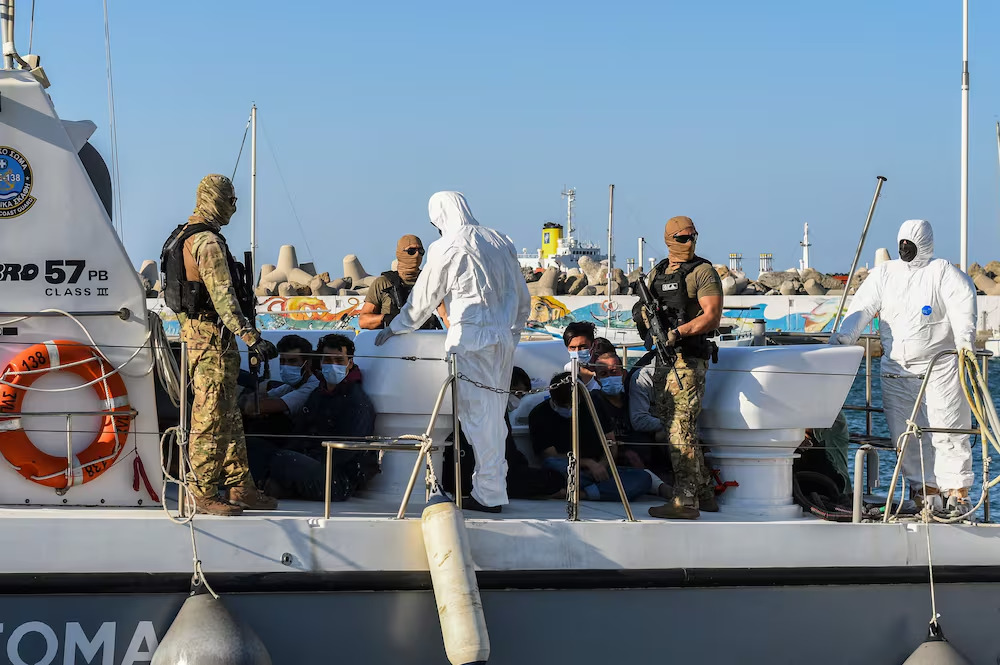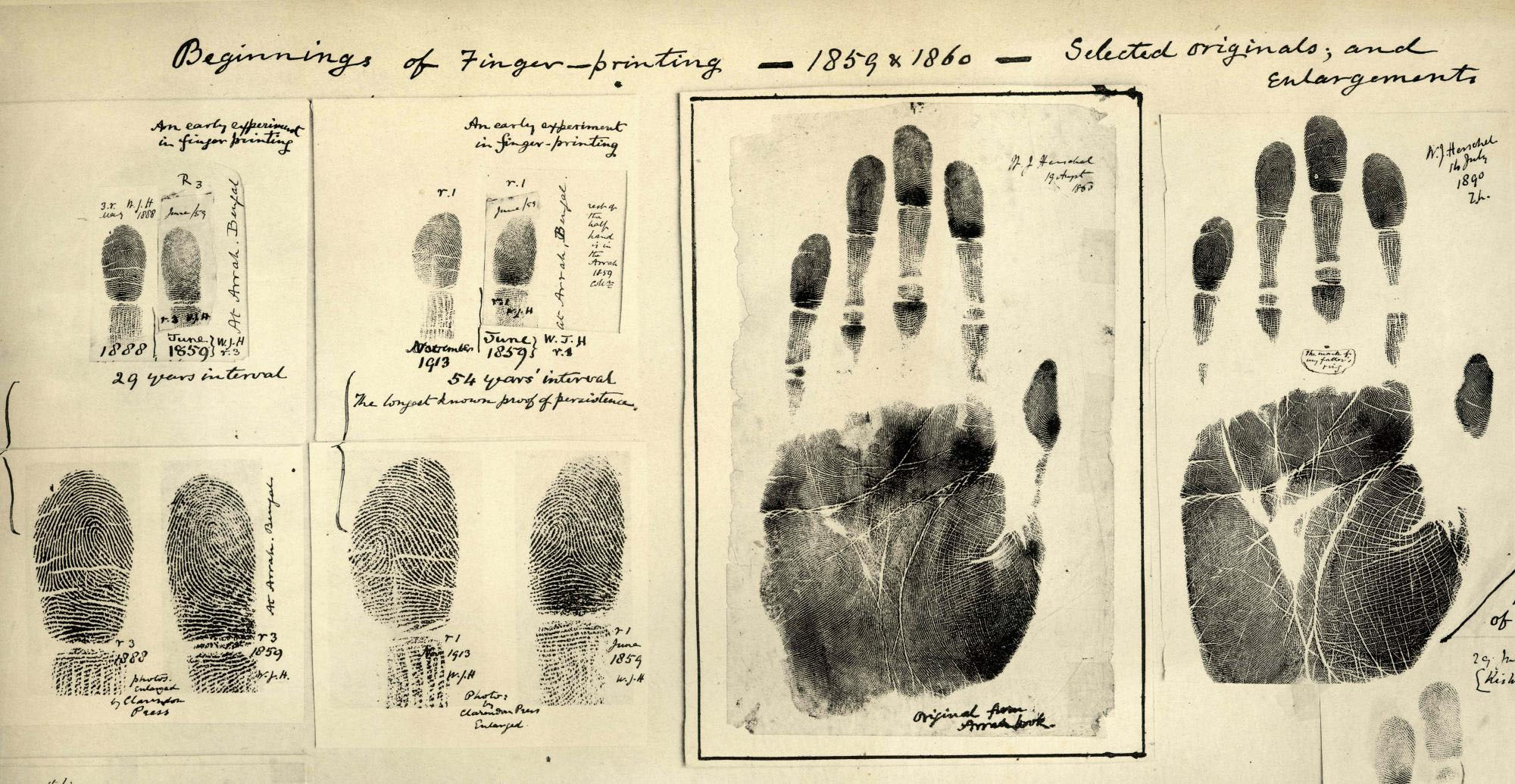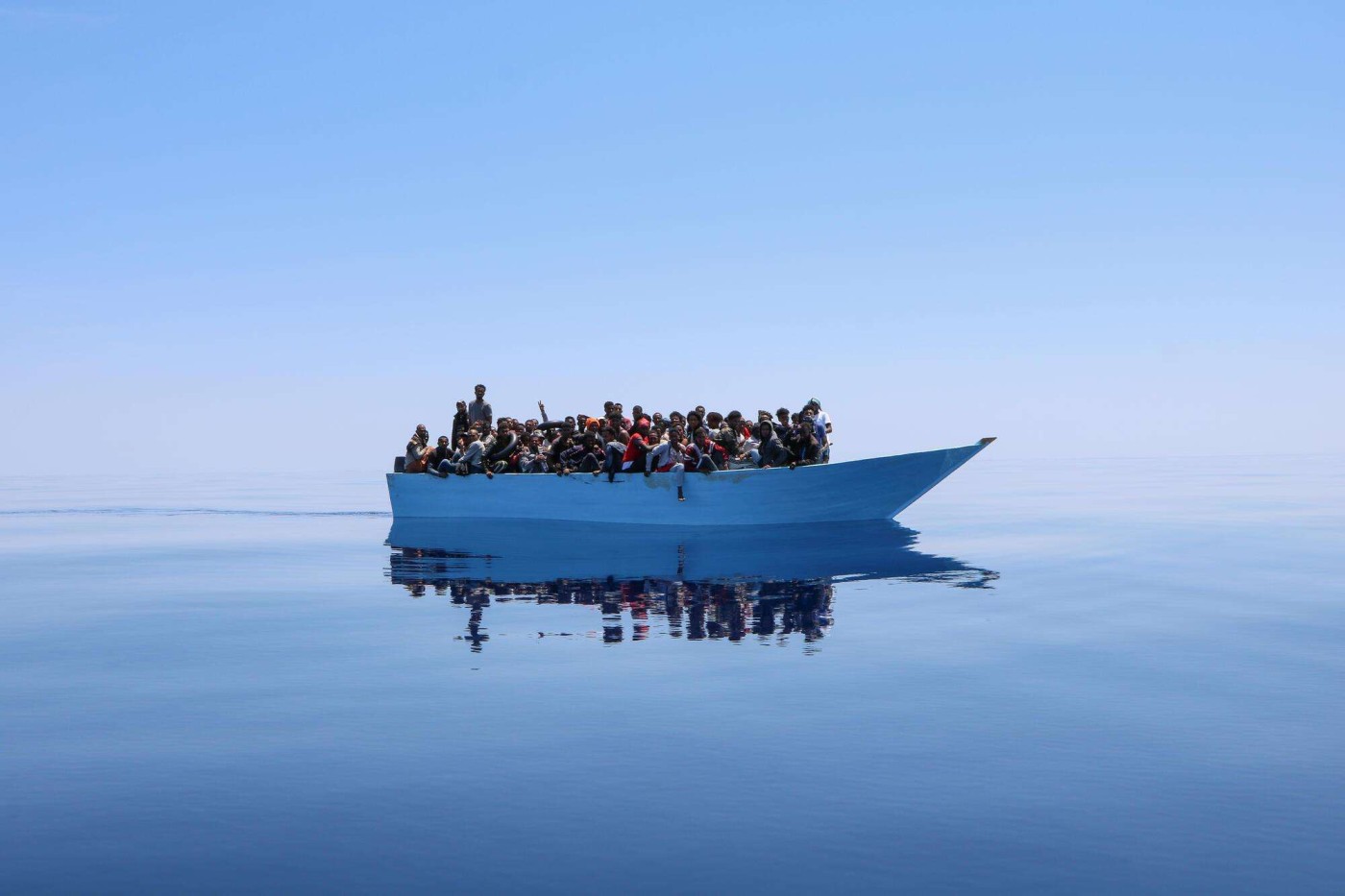"We do the work that states should do"
- The rescue ship Open Arms was blocked on 8 January in the port of Barcelona. As they have pointed out, people in a serious state at sea are shipwrecks and must be received; on the other hand, the proactive Open Arms group ensures that emigration is a political argument and that states use it. This NGO started its business in 2015 and has since rescued thousands of people. We've been with Erri Barriusoga, a worker of it.

First, why did you decide to participate in Open Arms?
Three or four years ago, a friend called me to tell me that I had seen a very interesting report on the subject in Libya on television. I mean Astral, a documentary recorded by Jordi Évole. At that time, the issue affected me greatly, and since then I have always followed the news on the subject.
In addition, I work at sea, in the Mediterranean, but in yachts. I was increasingly feeling the contrast, and I'm amazed that those two things can happen in the same sea, together with each other. Our biggest problem was that the champagne wasn't cold, and I heard about two hundred people drowning by my side. When I saved them, I was thrilled, and if I have to tell the truth, it's not easy to shock me.
In the summer of 2018 a patera arrived in Menorca. I was in a very bad state, but everybody came alive. At the time I was sailing and I found life jackets. I called a friend who had been to Open Arms before I went back to the ground and asked him to pass the contacts, who wanted and needed to do something. My initial intention was to volunteer, and for that I presented myself. But at that time, by chance, they were looking for professionals, and I have the degree. So they called me to go to work.
How many people are you in Open Arms?
The ship's equipment is divided into two parts. On the one hand, there are professionals, in short, a merchant, which requires a certain crew. There are three people on the bridge: the captain, the first officer and I, the second officer. In the machines there are mechanics, three others, and two sailors, who are at the same time bosses of the rescue boat. Moreover, there are volunteers. Among them, the doctor, the nurse, two journalists, four rescuers, the cook and a representative of the institution, among others. In addition, the press team and the psychological team are on the ground. With the latter, we can also maintain telephone contact when we are at sea.
Since you started, you've participated in two campaigns.
Yes, it is true. The first one started in November 2018. We spent a week in the port of Barcelona, organizing some things to do on the boat, and when we arrived at El Sargun we were immediately given our target, that is, our goal. There was news, we were informed that a small fishing boat from Santa Pola had collected twelve people near Malta and Libya. Putting twelve more people in one of these cases is not easy, the captain didn't know what to do. We help you analyze the health status of these people and give them blankets, food and others. There was a very serious one and it took work, but we got a helicopter to come in for him.
The vessel was fishing for about ten days in this situation, as the Spanish Government had to give it the authorisation to return to its country. At the last moment, the captain was desperate, the situation was untenable. They could not wait any longer and decided to leave Spain, although they did not have permission. An hour later they were called to tell them that they were going to leave the rescued in Malta. We don't know very well what that was, but we thought it was a warning. A message, in short, so that people know clearly what can happen if someone stays at sea.
When was the second one?
The second in January, therefore, we have carried out the ground campaign. The December rescue was massive, with over 300 people on board. Our intention was to do something like that in January, we were willing to do it, but we asked for permission on day 8 and on day 9 the Capitania told us no.
The Captaincy must allow the ship to leave the sea, but with technical criteria. For example, because we don't have tools to turn off the fire or because we haven't taken control of the trash properly. If these kinds of technical issues or crew qualifications are not right, they can stop the ship. Open Arms meets these criteria, so the ship has remained for another reason. That is not his job, but at that time there was no other way to stop the ship, so apparently the ship had to be forced. It is authority and we cannot do anything. In any case, if there is a resource, it would have to leave within three months of having put it in theory, that is, by the second week of April, we will see what happens.
There are therefore no major legal bases. Among the reasons why it is stopped there is one that says that Italy does not fulfil its obligations for closing its ports. That is nothing that can be attributed to the organisation or to the ship, in the face of a situation such as this, what a State has to do is denounce Italy and proclaim the Universal Declaration of Human Rights and compliance with the agreements.
According to the Spanish Minister of the Interior, Grande Marlaska, "a rescue is made when the situation is urgent and people are at risk". What Open Arms does is not that, what it does is catch people on the shores and transport them from one country to another."
What they want is to criminalise NGOs at the moment. Their goal is for no one from outside to reach our shores, especially if they are black and poor; other people can come without any problem. The argument used by right-wing parties is that emigration does harm, that it brings violence and that those who come take the job away from us.
All we do is try to guarantee human rights, and maritime agreements, of course. After all, people who are in a critical state at sea are nausea and must be collected in a compulsory manner. Where we work, about 250 boats a day go by, we comply with the law, that's it. That should be the work of states.
As for the words of the Spanish Minister of the Interior, it is above all what can be said to value life and to think that these people's lives have the same value as ours. So all that is said about it, and without going into political matters, is not allowed. We are not helping emigration, it is not our objective. We are saving lives, and we would like us not to have that obligation, but unfortunately we have it.
In June 2018 the Spanish Government received Aquarius. What has changed since then?
States cannot legally leave a person at sea. At that time, they are not refugees, they are not emigrants, they are shipwrecks, and any boat passing by has to pick them up inexcusable. To this end, the States of the area are obliged to offer a safe port to vessels.
Libya cannot be regarded as a safe state. There are concentration camps, torture, rape and many more. They say it's hell for them, especially for women. Many have told us that they prefer to die to return to Libya. So the nearest ports are Malta and Italy, but with the policy change everything has been closed. If no one gives a safe port, the ship must go to the flag State, where they will be required to pick it up. Aquarius had the flag of Panama, so no one here needed to catch it.
In the end, Spain did. It was a gesture and it had a great echo, but apparently things have changed. For them it is a political equation, the most important data in that equation are votes. Emigration is now a strong political argument, and if the votes are taken, it will be cast aside.
In Europe, there is the Frontex agency to protect borders. Do you have any relationship with them? In a few years there has been a brutal change, from the collection of shipwrecks to the counting. When we approached Malta with the fishing boat already mentioned, Frontex looked at us. We have no relationship with them, what they are doing now is closing borders and receiving no one. That's what NGOs do, so we do the work that states should do.
In any case, Father Mari, Sea Watch... There are many who are in your same situation. What are the consequences of the absence of rescue boats in the Mediterranean?
There hasn't been a single boat for a while. This, from any point of view, is very serious. The Open Arms, which was blocked on Tuesday, premiered next Friday and recorded a total of 170 cases of drowning. That, of course, is an official figure, it is a figure given by Libya. To make an idea, on the last occasion the Libyans took three bodies out of the water, knowing that they were about 200 or drowned, but since only three were rescued, the official number is three. If there is no one there, those lives have not existed and they will never exist. Furthermore, I would say that the Libyans also work differently if the NGOs are there, we are an external eye, direct witnesses. But if we're not, who is going to tell what's going on?
Does society know what's going on?
I would say no, but I think people in general don't have much interest in getting into that. Emigration is one of the parties involved, and emigration is very afraid. Moreover, far from managing this fear, the political classes intensify it. They generate fear to justify their attitude.
Furthermore, I believe that immigrants do not have enough information either. Because at the moment they are trying to criminalize these kinds of organizations, they often tell us why we're not going to the source. Open Arms starts with a project in Senegal. We want to inform the locals, because they don't know the risks they're going to have. Our aim is not to prevent emigration, because we all have the right to emigrate. What we do is to be properly informed, because they believe that they will have a life of Christ, and that is not the case. These people have to know what possibilities they will have here, that the situation is very harsh and that the journey can bring death. We do not want to save anyone, we would like there to be no such need and no one else to drown in the Mediterranean.
This interview was posted by Hiruka and we brought it to ARGIA thanks to the CC-by-sa license.
"Segurtasun gehiago, inmigrazio gutxiago". Bruno Retailleau barne ministro frantsesa argi mintzatu da, kargua hartu berritan. Etorkinen gaineko kontrola azkartu nahi du Michel Barnier lehen ministro eskuindar-kontserbadorearen gobernuak, eta jada Retailleauk aitzinatu... [+]
Europar Batasunean berriki onartu den Migrazio Itunak, asko zaildu dizkie gauzak euren herrialdetik ihesi doazen eta asiloa eskatzen duten pertsonei. Eskuin muturraren tesiak ogi tartean irentsita, migratzaileentzako kontrol neurri zorrotzagoak onartu dituzte Estrasburgon,... [+]
Migratzaileen kopurua anitz emendatu da Irun eta Hendaia arteko pasabidean. Irungo Harrera Sareak ohartarazi duenez, otsailean 600 pertsona lagundu dituzte, iaz, urte osoan 2.700 izan zirelarik. Iragan urtarrilean, 2.700 etorkin heldu dira Kanariar Uharteetara, egunero 80... [+]






















